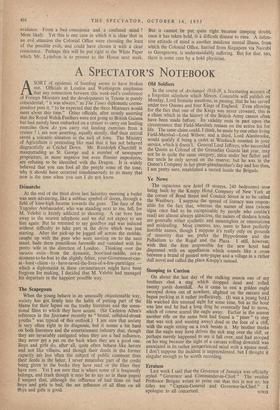The Scapegoats
When the young behave in an unusually objectionable way, society has got, firmly into the habit of putting part of the blame for their lapses on the trashy literature and the sensa- tional films to which they have access. (Sir Carleton Allen's reference in the Spectator recently to " brutal, celluloid-drunk youths " was typical of this outlook.) I am sure that society is very often right in its diagnosis, but it seems a bit hard on both literature and the entertainment industry that, though they are invariably castigated when they are a bad influence, they never get a pat on the back when they are a good one. Boys and girls do, after -all, quite often behave like heroes and not like villains, and though their deeds in the former capacity are less often the subject of public comment than their deeds in the latter, I never remember part of the credit being given to the books they have read or the films they have seen. Yet I am sure that is where some of it frequently belongs, and (rash though it may be to say so in these pages) I suspect that, although the influence of bad films on bad toys and girls is bad, the net influence of all films on all libys and girls is good.


































 Previous page
Previous page